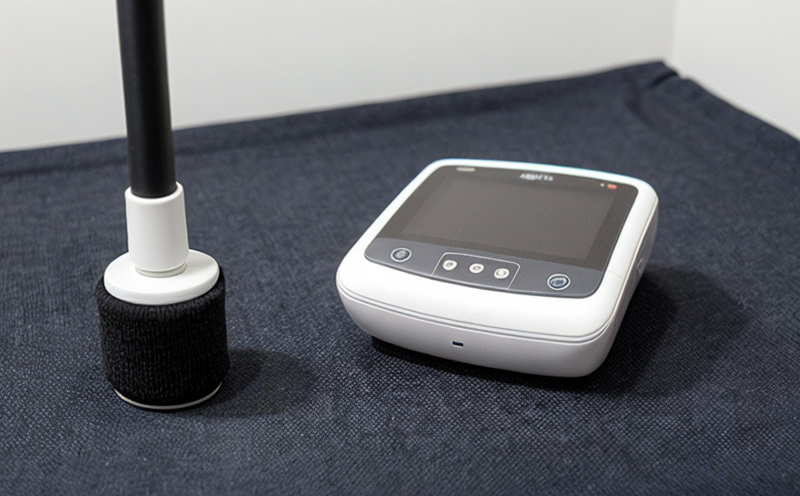GB T 2912 Determination of formaldehyde in smart clothing fabrics
The GB/T 2912 standard is one of the most significant standards governing formaldehyde content determination, particularly for textiles. This method plays a crucial role in ensuring that textiles comply with safety regulations and provide consumers with products that are free from harmful chemicals. The testing procedure outlined in this standard is designed to determine the total amount of releasable formaldehyde present in textiles, which can be emitted into the air during use.
Smart clothing fabrics have gained significant attention due to their innovative features such as moisture-wicking capabilities, breathability, and thermal regulation. These functionalities often come with a trade-off: the inclusion of certain chemical treatments that may release formaldehyde. Therefore, it is essential for manufacturers to conduct rigorous testing to ensure that these smart textiles meet strict formaldehyde emission limits.
The GB/T 2912 method involves soaking textile samples in a solution, followed by extraction and analysis using a spectrophotometer or gas chromatography. This process helps quantify the level of formaldehyde present in the sample. Compliance with this standard is mandatory for many industries, including apparel manufacturing, as it directly impacts consumer health and safety.
In the context of smart clothing fabrics, conducting GB/T 2912 testing ensures that the products meet stringent emission limits set forth by national and international standards. This not only enhances brand reputation but also fosters trust among consumers who value health and environmental responsibility.
The importance of adhering to these regulations cannot be overstated. Formaldehyde is classified as a carcinogen under certain conditions, making its presence in textiles particularly concerning for public health. By implementing GB/T 2912 testing early in the production process, manufacturers can identify potential issues before they become costly problems downstream.
Moreover, compliance with this standard helps businesses avoid legal risks associated with non-compliance and potential recalls or bans on affected products. It also demonstrates a commitment to sustainability and responsible manufacturing practices that are increasingly valued by consumers worldwide.
To summarize, conducting GB/T 2912 testing for smart clothing fabrics is vital for ensuring product safety and meeting regulatory requirements. This method provides accurate quantification of formaldehyde content, enabling manufacturers to produce safe, compliant products that meet industry standards and consumer expectations.
Benefits
- Ensures compliance with national and international textile standards.
- Reduces the risk of legal action due to non-compliance or product recalls.
- Promotes brand reputation by demonstrating a commitment to consumer safety and environmental responsibility.
- Increases customer trust and satisfaction through the provision of safer products.
Customer Impact and Satisfaction
Conducting GB/T 2912 testing offers numerous benefits for customers, including enhanced product safety and increased consumer confidence. When manufacturers follow this standard rigorously, they can ensure that their smart clothing fabrics contain acceptable levels of formaldehyde. This not only protects the health of end-users but also aligns with broader sustainability goals.
Consumers value transparency in manufacturing processes and are more likely to choose brands that prioritize safety and environmental responsibility. By implementing GB/T 2912 testing, manufacturers can provide reassurance that their products meet rigorous standards, thereby boosting customer trust and satisfaction.
In addition, compliance with this standard helps businesses maintain a positive public image, which is crucial in today’s competitive market where reputation plays a significant role in consumer decision-making. Ultimately, adherence to GB/T 2912 testing contributes to the overall well-being of consumers while supporting sustainable business practices.
International Acceptance and Recognition
The GB/T 2912 standard is widely recognized both domestically and internationally for its robust approach to formaldehyde content determination in textiles. Its acceptance extends beyond China, where it was first established, to other countries that adopt similar regulatory frameworks.
Many international standards, such as ISO/IEC 17025, emphasize the importance of proficiency in testing methods like those outlined in GB/T 2912. This recognition underscores the reliability and accuracy of results obtained through this procedure. Furthermore, adherence to these stringent testing protocols is increasingly becoming a benchmark for quality assurance globally.
The widespread adoption of GB/T 2912 demonstrates its effectiveness as an industry standard. It ensures consistent and reliable measurement across different laboratories worldwide, fostering trust among stakeholders involved in textile production and consumption.





